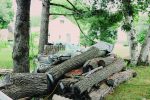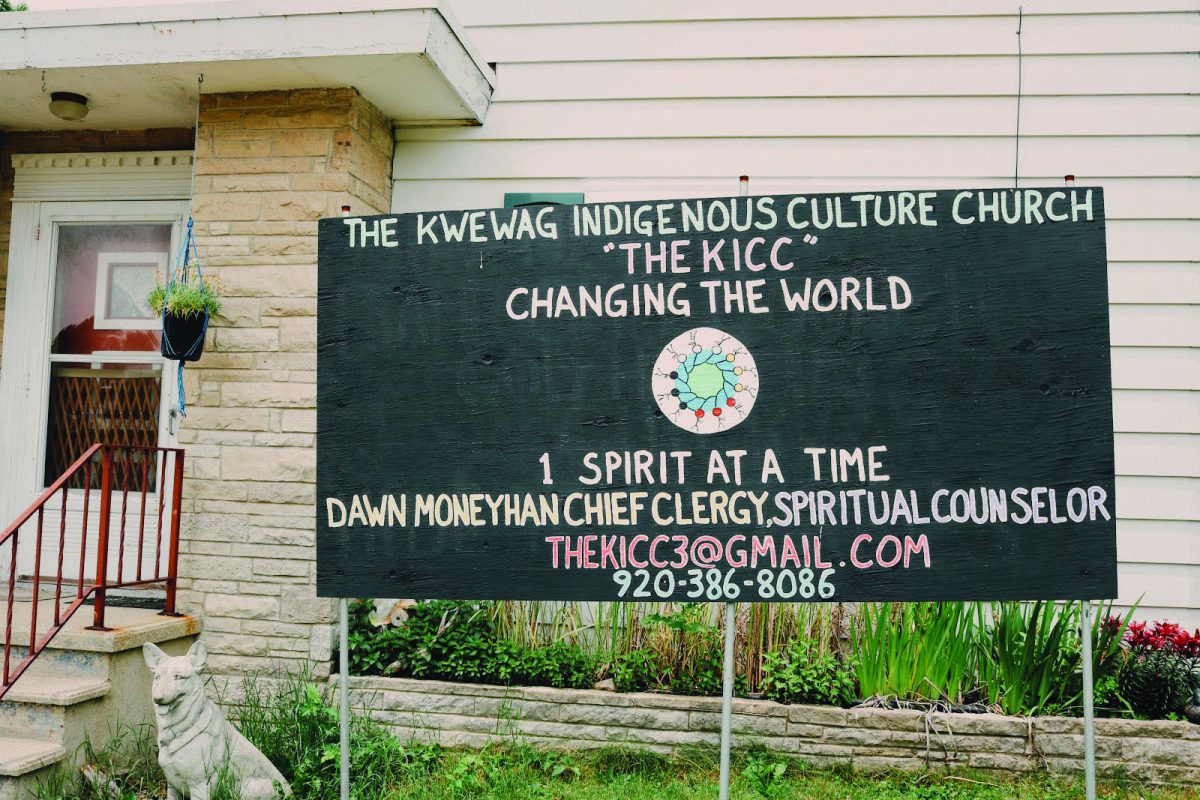The state of invisibility is an uncomfortable space where those who occupy it go unseen, unheard and unconsidered.
I’ve struggled with how I wanted to write this for a long time, because I felt it was not my place to talk about an experience that doesn’t apply to me. This is an experience felt by Native Americans and I didn’t see it as my place, as a non-indigenous student, to write about it.
That was until Dawn Moneyhan, founder and president of The Kwewag Indigenous Culture Church (KICC), encouraged me to write it as merely the storyteller. She told me to write about what I’ve learned rather than attempt to put into words what Native American people and their culture have endured.
She told me that sharing what I’ve learned will inspire others to learn alongside me. I told Dawn that compiling a list of everything I’ve learned from her into a condensed newspaper article would be nearly impossible, but I plan to try.
Thank you, Dawn.
Native American people and their culture have been denied a platform to share their story for generations. They have been silenced, stripped of the opportunity to share their teachings with the world.
Dawn’s message is blunt and urgent. Our planet is burning around us. We are engulfed in flames and not realizing that we hold the matches.
Dawn created the KICC as a way to spread her teachings about Native American culture and traditions to create an environment with less secrecy and more awareness.
“Our indigenous history is long. It’s tragic, and it’s ongoing. It was still illegal to be me when I was 2. I was 8 years-old before it was actually legal for us to practice our cultures, religions, spiritual beliefs, traditions, wear our clothing, any of that stuff in the United States,” Moneyhan told Madison365. “What we’re doing with the KICC is meant to help heal. It’s also meant to help teach the world to live a better life because we can’t ever go through that again. We can’t go backward.”
What makes the KICC so special is that she has made it available to everyone, whether you’re indigenous or not.

When we first met, I explained to Dawn that I knew very little about her people and their culture. I told her that my middle and high school classes did very little justice and that I was close to clueless.
This didn’t make her angry, nor did she shame me. Rather, she saw it as an opportunity to teach me.
She told me to ask the uncomfortable, hard questions. She told me that in order to learn and understand, it was crucial for me to ask questions.
She emphasized the importance of learning about Native American experiences through a Native American. She taught me about Spirit, and how it exists in everything we can feel. She taught me that life inheres in more forms than we acknowledge.
She also taught me how to feel the hum of energy in my fingers as I held a rock between my palms. She showed me that magic exists if you take a moment to notice it.
Dawn’s aspirations begin with teaching in front of classes across the UW-System and span far beyond.
She hopes to one day build an off-the-grid school where people of any age may come and spend time unplugged from the fast-paced world and learn to slow down. She plans to create a place where people can learn how to live independently off the land.
Her dream is to teach people how to take care of themselves using what the environment has already provided us that we fail to acknowledge.
“Everything we need is right under our noses,” Moneyhan said.
She explained to me that people think in order to live this way that they have to give up their modern day luxuries. Dawn says keep your luxuries, but rather incorporate the tactics of our ancestors into our lives.
“All of our Native American and indigenous people understand that Mother Earth provides for all of our needs. It doesn’t mean that we don’t have to do the work ourselves. We still have to listen, watch and pay attention,” Moneyhan said. “The information and tools that we need to make everything a reality are provided. Which is why our ancestors didn’t just survive here for tens of thousands of years, they thrived here.”
Dawn taught me that people who are reliant on others for their means are easily controlled.
Knowledge is freeing.
Knowing how to take care of yourself, without depending on someone else, is freeing. All it takes is the willingness to learn how.
Along with the school, she has her heart set on building community gardens in cities where people don’t have enough to feed themselves.
How is it possible that in a world as advanced as we believe ourselves to be that people still starve and go without water or a roof over their heads?
She taught me to have compassion for those who have less. The world is a cruel place to live with your head barely above the surface, especially when you can’t see the force of the current pulling them under.
Everyone has their reasons for the way they live their lives, and our only role is to be compassionate. We are all still humans. Just as the Earth takes care of us, we have to take care of each other.
I spent a day this summer with Dawn in her tipi on her property and she told me the story of her 100-year-old tree that was chopped down by the city of Juneau to pave a cement sidewalk in its place.
Dawn fought against the city in every peaceful manner possible, yet her tree that had survived for generations before, was unable to survive this battle. She explained to me that this was much more than a tree to her and her family.
It was the ongoing battle of being ostracized for not being understood. She tried to explain that the removal of her tree went against all beliefs in her culture. She pleaded with the city to let her keep her tree, but their decision was irreversible, as were the effects on Dawn.
Members of the Juneau municipality told Dawn that because they knew nothing about her culture they did not care.
She insisted that the city leave the remains of her tree on her property so that the spirit could remain.
Dawn is fighting a war that can’t be won by her alone. The goals that she wishes to accomplish in her lifetime cannot be met without a community behind her.
She often jokes that she has enough ideas to last through all of our lifetimes. But I believe her.
As a non-indigenous student, I encourage you to care. I encourage you to read about The KICC for yourself and become involved.
Dawn compared life to a bus controlled by Spirit.
“I am driving the bus, but Spirit holds the roadmap. My job is to get us to our final destination without driving off a cliff. When we are stuck, it is to pick up people along the way who are meant to be a part of (or are in need of) our mission,” she said.
I encourage you to be a part of the mission.










